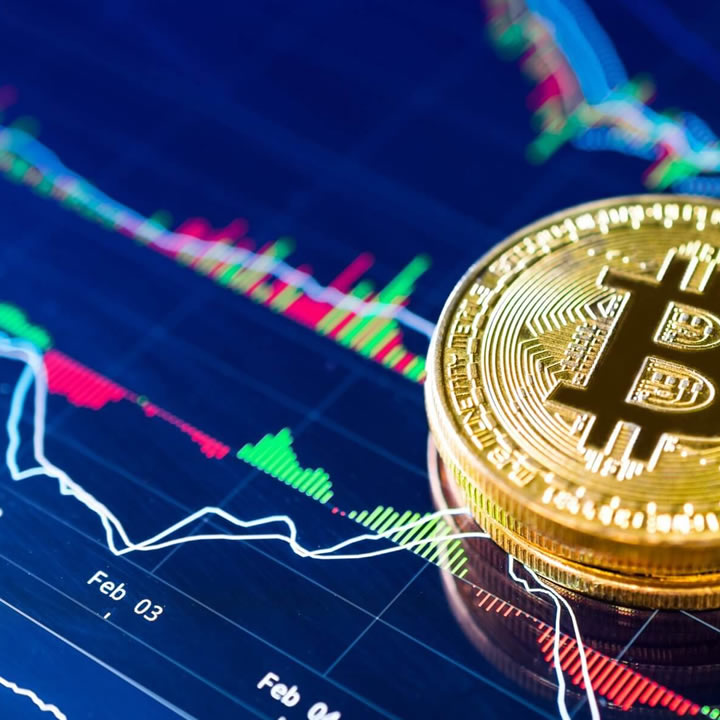Bitcoin has seen a volatile start to 2021. It initially punched the roof to $42,000 followed by a dip to $30,300. On January 11th alone, it saw its value depreciate by almost 20%. This rocky pattern has raised many concerns. This was followed by a statement from the United Kingdom’s Financial Conduct Authority (FCA), who warned crypto investors that they might be in danger of losing all their money and labelled it as a high-risk speculative investment. On the other hand, however, analysts from JPMorgan said that Bitcoin could rise to $146,000.
The dip dragged with it the total market value of the cryptocurrencies down to around $930 billion. In the preceding week, the crypto market had capped at $1 trillion for the first time in history.
At the beginning of 2020, Bitcoin averaged about $7,300. It ended the year at an average of $29,000, seeing a growth of almost 300% in 12 months. December 2020 alone represented a 53% increase, from $19,000 to $29,000. On 07th Jan 2021, it hit an all-time high of $40,000, before nosediving to $30,000. Now, Bitcoin resides between $32,000 and $36,000. Bitcoin, as the cryptocurrency news would rant, doesn’t sleep. Other crypto currencies such as Ethereum saw a rise of about 675% in the last year.
The true cause of Bitcoin’s rise and fall is unknown as of yet, but it has brought to light the whales of bitcoin. Bitcoin investors, according to the Crypto Price analysis, were found to be selling to meet their rising demand. The network remains vigorous for the Crypto currency, and the Bull Run has resumed. This has led to big bitcoin investors seeing an increase of 200% in the past week.
Analysts suggest that in the long run, crypto-currency could allure investors as it competes with gold and dollar, while in the short term, there may be a pullback.
The recent trend of investors using algorithms and Crypto bots has allowed users to buy and sell in smaller quantities. The market witnessed this practice by the U.S. software firm MicroStrategy Inc.
The Cryptocurrencies, during the pandemic, have risen from the dark. While the pandemic ravaged world economies, the crypto world has welcomed it. However, the nature of the digital commodity has also locked fortunes as a consequence of forgotten passwords and lost keys.
Mr. Stefan Thomas made news recently as he is now left with only two attempts to unlock his bitcoin wallet. The wallet, as of 12th January, is worth $220 million with 7,002 bitcoins. Mr. Thomas, and many other owners that owned bitcoin since the early days, are having sleepless nights. They clearly had no clue that the coins would be worth anything.
The memories of 2017 and the internet stock bubble of 1990 are being refreshed by a few. The bitcoin jetted to $19,900 and then crashed to about $5,870 in eight weeks. There are no essential changes to the outlook of cryptocurrency as it is suggested that long-term investors from Europe and North America are looking to buy and hold.
The meteoric rise of Blockhain adoption has made regulators swing into action. The Securities and Exchange Commission (SEC) and the Consumer Financial Protection Bureau (CFPB) are primarily focused on protecting investors and consumers. The U.S. Federal banking agencies are focusing on protecting banking institutions. The question, therefore, remains; W\why aren’t countries creating a single entity to oversee crypto and other digital assets at the federal level?
The Joe Biden administration is said to make some prominent changes to appointments. These appointments would include a role in agencies as SEC and Commodity Futures Trading Commission (CFTC) in the coming months. They would have to walk a tight rope, balancing the protection of consumers, investors, and the fintechs.
They still await transparency towards the Framework for Digital Assets (2019), and questions still remain. Is it the companies, investors, or the fintech, and how is the Howey Test to be applied?
The guidance is unclear, as the digital assets require the question of custody to be answered. The SEC has recently labeled a crypto currency trade as security on blockchains against Ripple. The SEC has refused to enter into a settlement and can be seen actively looking into the matters.

